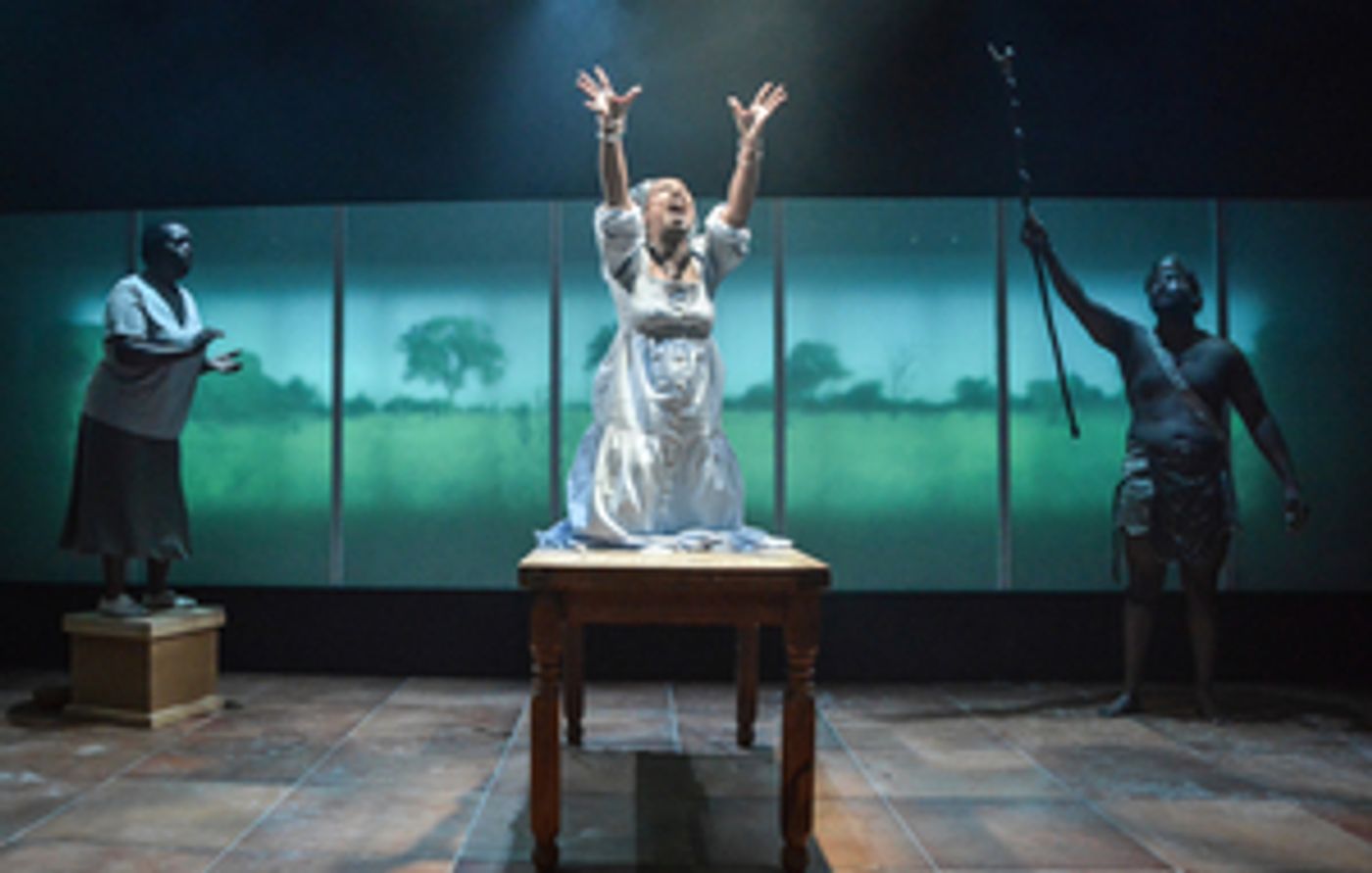Review: MALINDADZIMU, Hampstead Theatre
Mufaro Makubika's second play is an exciting showcase of new talent

![]() As tourists return to Oxford, one spot along the high street has become part of every walking tour: the statue of Cecil Rhodes that, despite years of protests and the recent rise of the Rhodes Must Fall movement, remains standing outside Oriel College.
As tourists return to Oxford, one spot along the high street has become part of every walking tour: the statue of Cecil Rhodes that, despite years of protests and the recent rise of the Rhodes Must Fall movement, remains standing outside Oriel College.
In Malindadzimu, award-winning new playwright Mufaro Makubika humanises the headlines, leading us from Nottingham to Zimbabwe in a tale of mothers, daughters and spiritual ancestors. Premiering at Hampstead Theatre, the play is an exciting showcase of new talent: both director Monique Touko and actress Kudzai Mangombe make their professional debuts.
Malindadzimu opens in a hospital room in Nottingham, as Hope (Mangombe) has had her stomach pumped after overdosing on pills. Her mother Faith (Shyko Amos), worrying about her daughter's continually unstable mental state, moves them back 'home' to Zimbabwe. Once there, they reconnect with elder Gogo (Natasha Williams), who in turn reconnects Hope and Faith with Zimbabwean culture and tradition, and with the world of their ancestors. What Hope uncovers about the family's connections to Rhodes strains the relationship between mother and daughter, before a final spiritual reckoning.
As the teenage Hope, Mangombe gives a vivid, tangible performance, fizzing with an anxious youthful energy throughout. Williams as Gogo steals the scene time and time again, embodying the bold character with every inch of her physicality. As Faith, Amos has perhaps the hardest job, tackling a subtler character. Her performance is remarkably grounded, and her skill really shines through in the emotionally intense ending sequence.
Makubika's script dances between three worlds: the familiar urban mundanity of Nottingham, bright, rural Zimbabwe, and the spiritual world of Faith and Hope's ancestors. The honest dialogue brings all three to life with skill. This is particularly effective in a scene where Gogo teaches Hope to make peanut butter by hand and dress like "a real Zimbabwean woman", and Hope in turn teaches her to use Instagram.
Every so often, however, lines and ideas feel repeated once too often. In addition, the first few scenes feel as though they move too quickly, with characters making decisions that don't quite make sense, or changing their minds entirely within five minutes. Regardless, the scope and intensity of Makubika's writing is outstanding.
The three worlds of the play are evoked not only by the dialogue but by the detail of the set, lighting and sound design. Zoë Hurwitz's set introduces a wall painting of Zimbabwe in the first scene and then brings it to life behind a translucent screen. Cleverly, this masked portion of the stage comes to double as home to the ancestor characters, forming a spiritual realm of sorts.
Matt Haskins' lighting design emphasises this division, while also illuminating scenes of hallucinations or visions in striking spotlights. Adding to this, Max Pappenheim's sound design, combined with the music by cast member Tendai Humphrey Sitima, immerses the audience in the Zimbabwean landscape, incorporating drumming, mbira and rain sticks alongside the sounds of nature.
Director Monique Touko makes an impressively polished professional debut. Her staging doesn't shy away from the script's probing questions about heritage, beliefs and family, blurring the lines between Makubika's three worlds intricately. Using all four corners of the theatre as entrances and exits, she brings the audience into the world of the play. Her blocking really comes into its own in the final scene, as the stakes rise and the movement becomes more frantic, more intense. Touko is without a doubt one to watch.
This is a play that's extremely current without feeling obvious in any way. Its references to the likes of TikTok and Sainsbury's are integrated into the script rather than feeling tacked on for relevance, and instead of treating Rhodes Must Fall as a hot-button topic, it explores the human impact of Rhodes's legacy sensitively.
Malindadzimu is a delicate, confident production that leaves you thinking: about heritage, about family, and about the authentic, exciting stories that are finally making their way to the stage. The play puts Black voices front and centre and allows new talent to step into the spotlight.
Malindadzimu runs at the Hampstead Theatre until 30 October.
Photo credit: Robert Day
Reader Reviews
Videos

